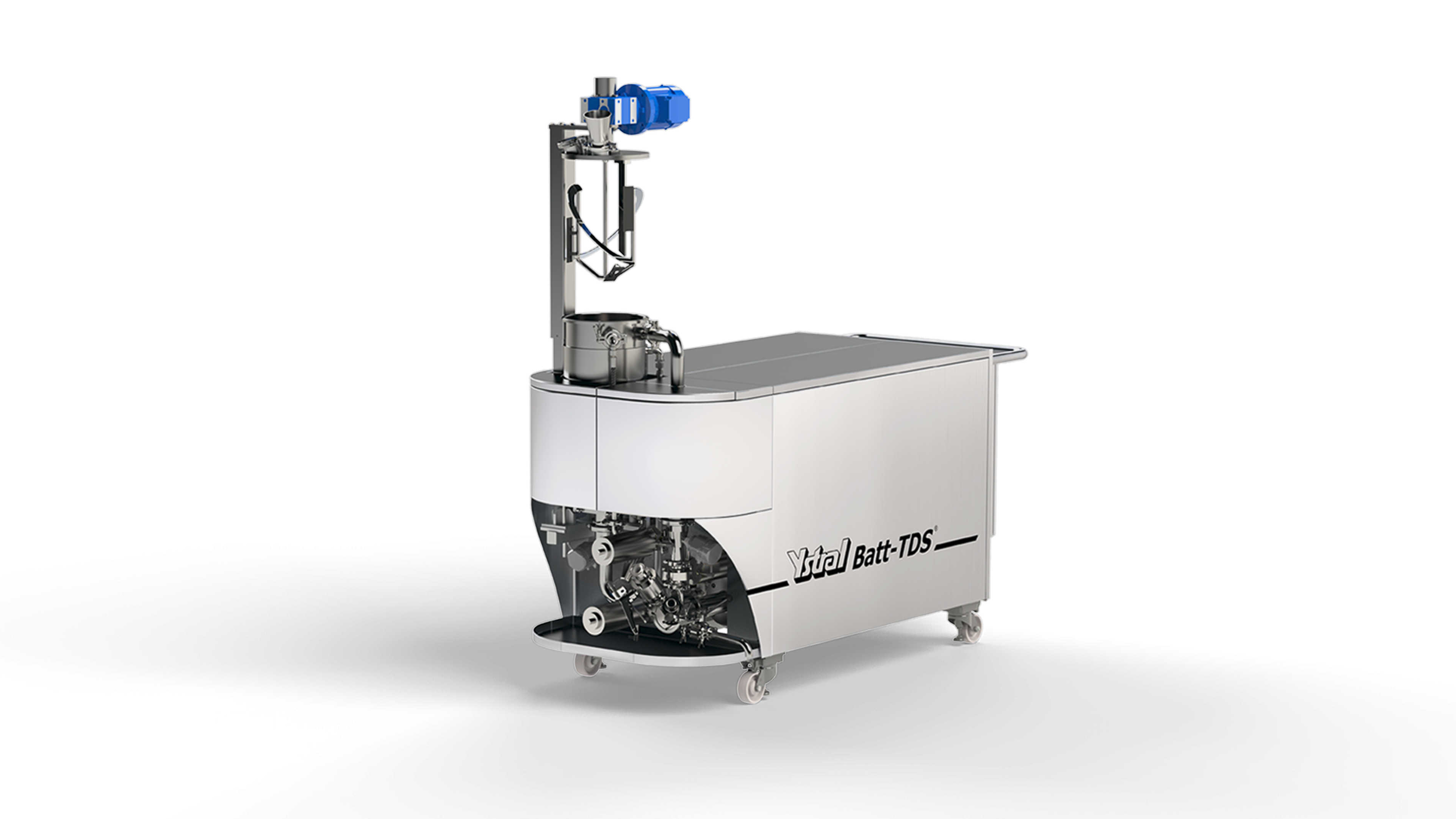The machine and plant manufacturer ystral is supporting the battery cell research production project in Münster with a mixing and dispersing system in the "FFB PreFab", which will be used to test manufacturing processes and new formulations for battery cell production.
Test operations on the ystral system are scheduled to begin at the end of next year. The Fraunhofer Research Facility for Battery Cell Production (FFB) being established as part of the project will enable industrial companies along the entire battery cell production value chain to test selected process steps or complete production processes in terms of materials, production technology, energy and resource efficiency, quality, throughput and costs and to optimize them for their purposes. The first Fraunhofer FFB building currently under construction, the "FFB PreFab", will contain a sample line for small-scale battery cell production. The knowledge gained from this will be used for a test line for medium-scale production research and a production line for large-scale battery cell production, which will be ready for use in another building - the "FFB Fab" - from 2025.
The core element of the system installed by ystral in the FFB PreFab will be the Ystral Batt-TDS Navi machine, a dispersing system for the production of lithium-ion electrode slurries with batch sizes of up to 12 L, which was specially developed for R&D purposes and enables the entire slurry mixing process to be realized within a few minutes. "The Ystral Batt-TDS draws powder materials dust-free under vacuum into a liquid stream and thus enables dispersion of the powder particles within milliseconds," says Ystral Managing Director David Manke, who has been involved in the development of the Batt-TDS from the very beginning. "The dispersion of polymer binders, conductive carbons and abrasive active materials is adapted according to their specific physical properties and structures." In addition to the Batt-TDS Navi, the Ystral Batt-TDS is also available in three other sizes for medium and large-scale production processes for cathode or anode slurries with a capacity of up to 5,000 L/h.


